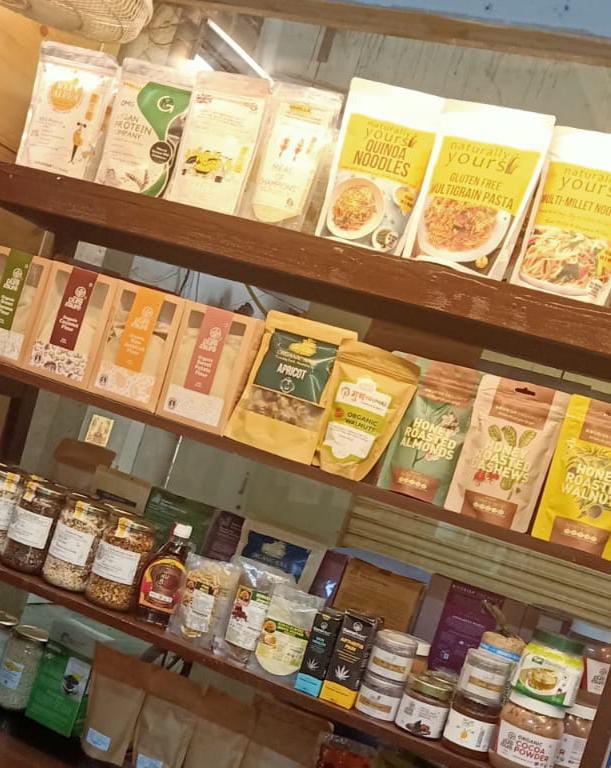Are Organic Foods really Safer and More Nutritious?
Organic foods have grown increasingly popular over the last 2 decades because some people think that the organic food is safer, healthier, and tastier than their conventionally grown counterparts whereas others say that buying organically grown food items is better for the environment and the well-being of animals.
Therefore, organic food which was once found only in the health food stores is now a common feature at most of the grocery stores and Organic Store Online.
What is Organic Food?
The term “organic” refers to those foods which are grown or farmed without the use of:
• Artificial Chemicals
• Hormones
• Antibiotics
• Genetically Modified Organisms (GMOs).
Which means, a labelled organic food product is the one that is free of artificial food additives including ‘artificial sweeteners’, ‘preservatives, coloring’, ‘flavoring’, and ‘monosodium glutamate (MSG)’ etc.
So, the organically grown crops use natural fertilizers such as manure for improving the growth of the plant. Talking about the organic animal products, the animals are raised organically who are not given any antibiotics or hormones.
And the best part of organic farming is that, it tends to improve the soil quality and the conservation of groundwater. In fact, the organic farming also reduces pollution which is again better for the environment.
Well, the most commonly purchased organic foods are:
Fruits,
Vegetables,
Grains,
Dairy products, and
Meat.
However, a section of people search for an Organic Grocery Store Near Me for buying processed organic products such as sodas, cookies, and meat substitutes.
The word "organic" stands for the way how farmers grow and process the agricultural products. Hence, the organic farming practices meet the following goals:
Organic Farming practices are known to improve water and soil quality,
Organic Farming methods are known to cut pollution,
Organic Farming provides safe and healthy places for farm animals to live,
Organic Farming practices also enable the natural farm animals' behavior, and
At last, Organic Farming promotes a self-sustaining cycle of resources on a farm.
Here is a list of materials or methods which are not allowed in the organic farming practice:
Artificial fertilizers for adding nutrients to the soil,
Sewage sludge as fertilizer and synthetic pesticides for pest control,
Radiation to preserve food or to get rid of diseases,
Genetic technology to change the genetic makeup of crops, and
Antibiotics or growth hormones for the animals. Organic farming practices may include the following materials:
Organic farming practices are allowed to use plant waste left on fields as well as the manure of farm animals to improve soil quality,
Organic farming methods perform plant rotation for keep soil quality intact while stopping cycles of pests or disease,
Organic farming methods include covering crops for preventing the wearing away of soil at times when some sections of land aren't in use,
Organic farming also allows to use mulch to control weeds and the insects or insect traps for controlling the pests, and
Organic farming can also use some natural pesticides and a few synthetic pesticides which are approved for organic farming. However, these are used rarely and they are only used when using them is the last choice.
Organic food: Is it safer or more nutritious?
Well, as we have discussed above the organic products farming doesn’t use any harmful chemicals which makes them potentially safer and more nutritious. However, there are no scientific evidences for the same but some data shows possible health benefits of eating organic foods when compared to the foods grown with conventional process. Some potential benefits of organic food include the following:
Nutrients: In some studies, it has been shown that some nutrients are present more in the organic produces. That means, the organic produces may have more of certain antioxidants and flavonoids that have antioxidant properties.
Omega-3 fatty acids: The feeding requirements for organic farm animals are different which usually cause higher levels of omega-3 fatty acids in the animal products. Well, Omega-3 fatty acids are good for our health because these are a kind of fat which are more heart healthy than other types of fats. These higher omega-3 fatty acids are usually found in more quantity in the organic meats, dairy and eggs.
Pesticide residue: The organically grown produce has lower levels of pesticide residue when compared with the produces which are grown using conventional farming methods.
Bacteria: Meats that are produced using the conventional methods may have higher amounts of dangerous bacteria. However, such bacteria can’t be treated with the antibiotics. But, in the organically grown food items, these bacteria aren’t there making them healthier and safer.
Well, if you also want to make a switch from conventional food to the organic food produces, then visit our Organic Fruits Store to buy the best quality organic food at best price.
What is the Difference between Organic and Non-Organic Apples?

Comments
Post a Comment